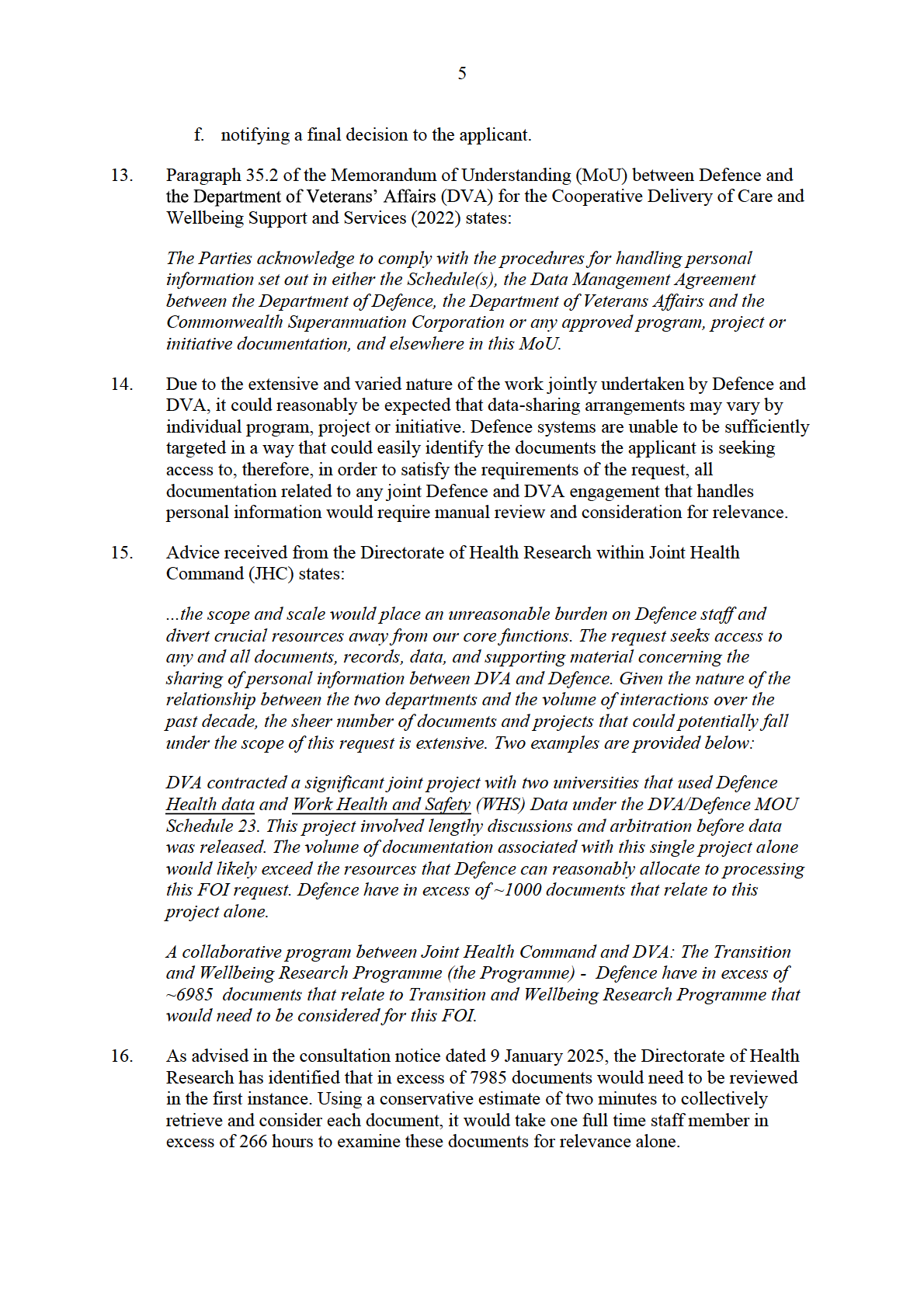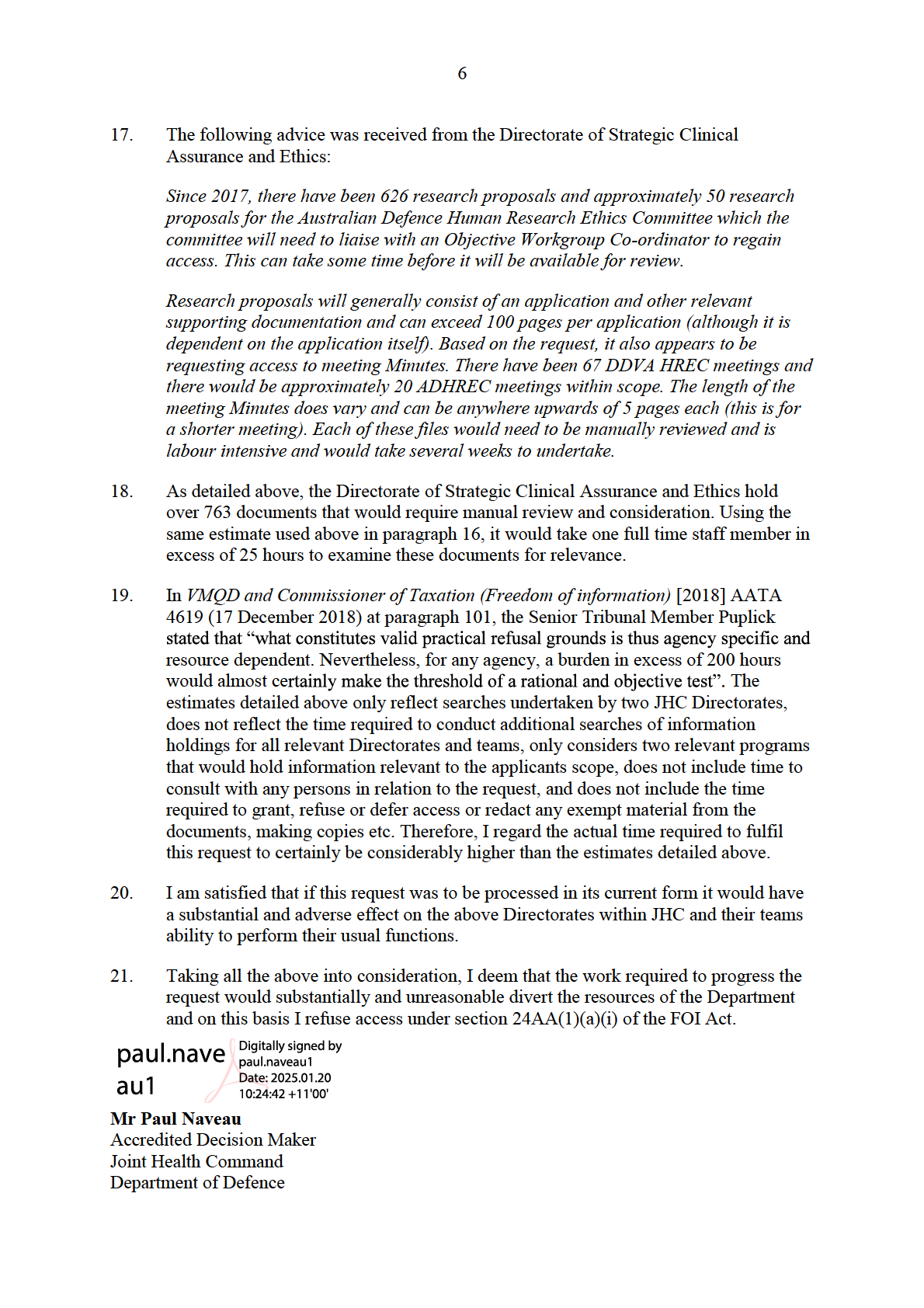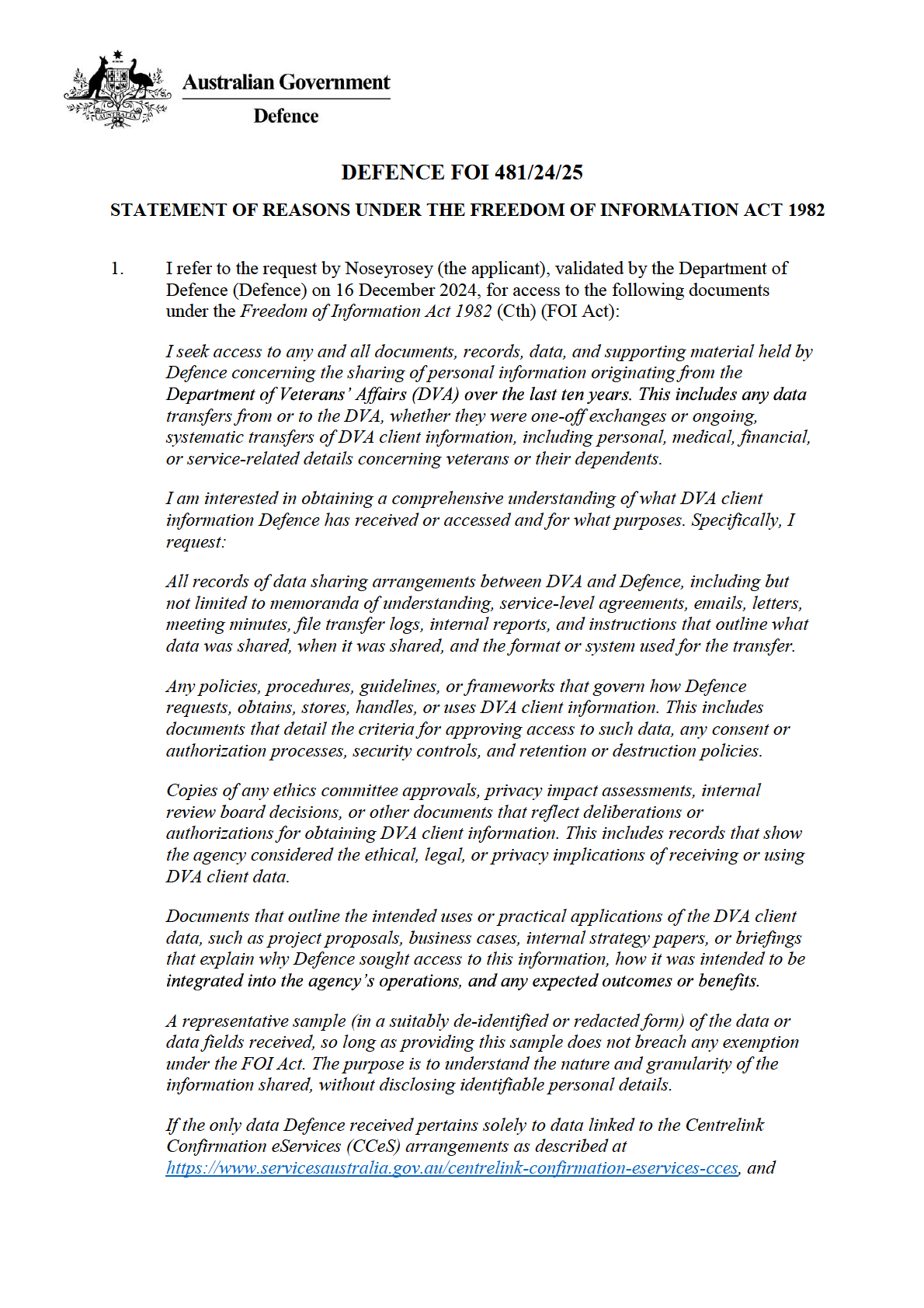
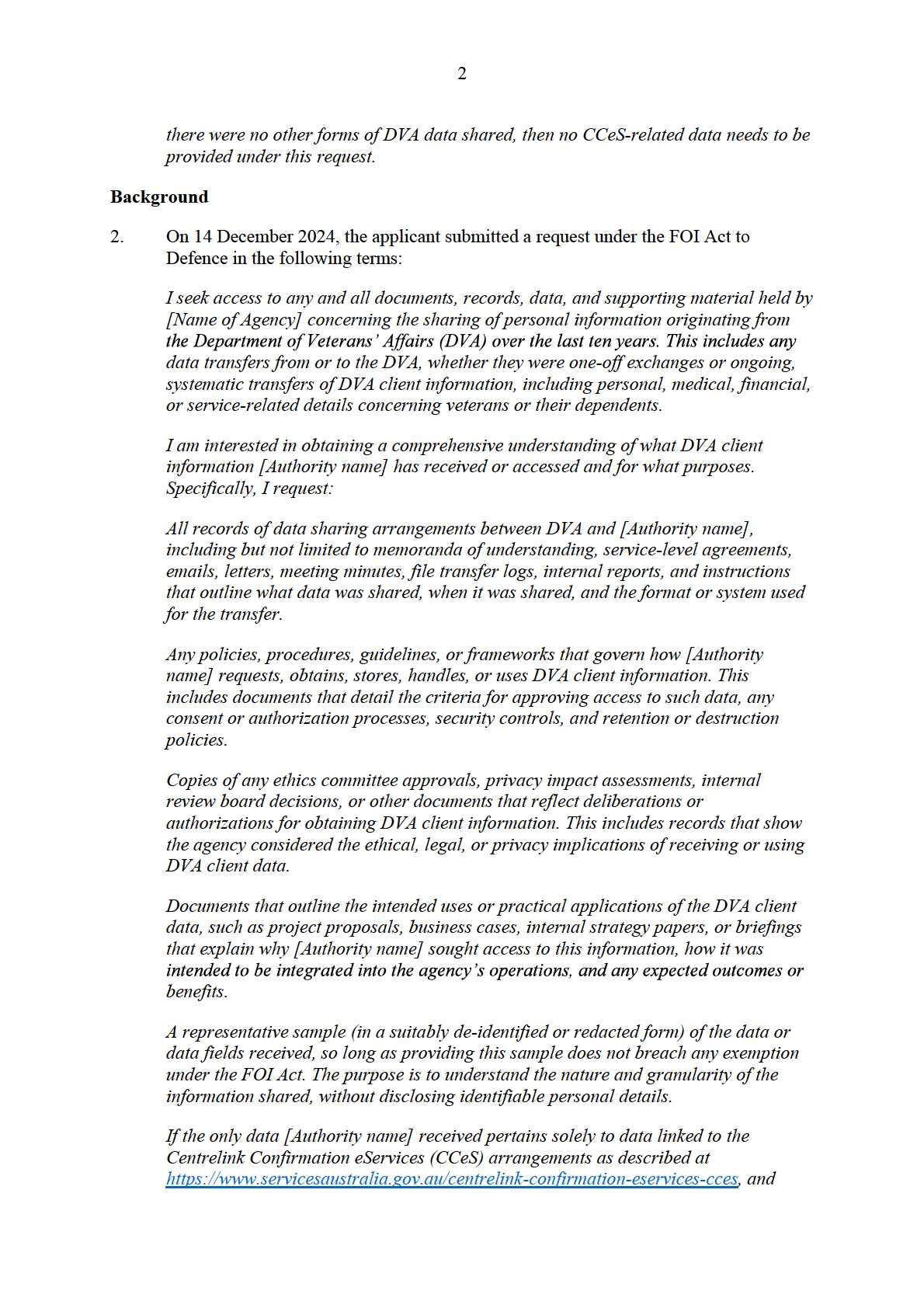
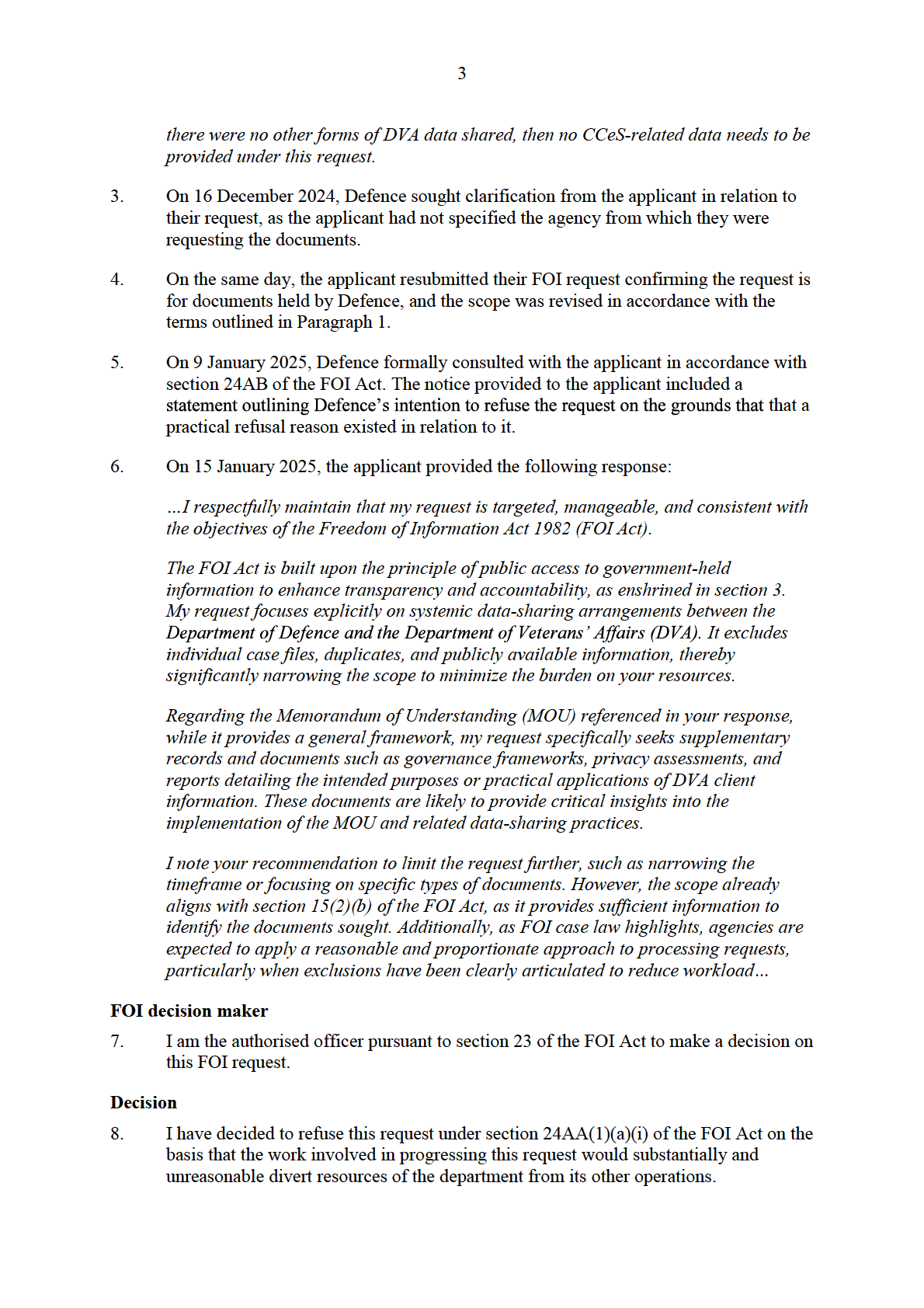
4
Material taken into account
9.
In making my decision, I have had regard to:
a. the terms of the request;
b. relevant provisions of the FOI Act;
c. the Guidelines published by the Office of the Australian Information
Commissioner under section 93A of the FOI Act (the Guidelines); and
d. advice received from officers within the Directorate of Defence Health Policy,
Directorate of Health Research and the Directorate of Strategic Clinical
Assurance and Ethics in Joint Health Command (JHC).
REASONS FOR DECISION
Section 24AA When does a practical refusal reason exist?
10.
Section 24AA of the FOI Act outlines when a practical refusal reason exists for the
purposes of section 24. Relevantly, section 24AA(1)(a) provides that a practical
refusal reason exists if:
(a) the work involved in processing the request:
i.
in the case of an agency would substantially and unreasonably divert
the resources of the agency from its other operations
11.
Section 24(1) of the FOI Act provides that:
If an agency or Minister is satisfied, when dealing with a request for a document,
that a practical refusal reason exists in relation to the request (see section 24AA),
the agency or Minister:
(a) must undertake a request consultation process (see section 24AB); and
(b) if, after the request consultation process, the agency or Minister is
satisfied that the practical refusal reason still exists the agency or
Minister may refuse to give access to the document in accordance with the
request.
12.
In considering whether a practical refusal reason exists I had regard to the matters set
out in section 24AA(2), namely the resources required to perform the following
activities:
a. identifying, locating or collating documents within the filing system of the
agency or minister;
b. examining the documents;
c. deciding whether to grant, refuse or defer access;
d. consulting with other parties;
e. redacting exempt material from the documents; and
